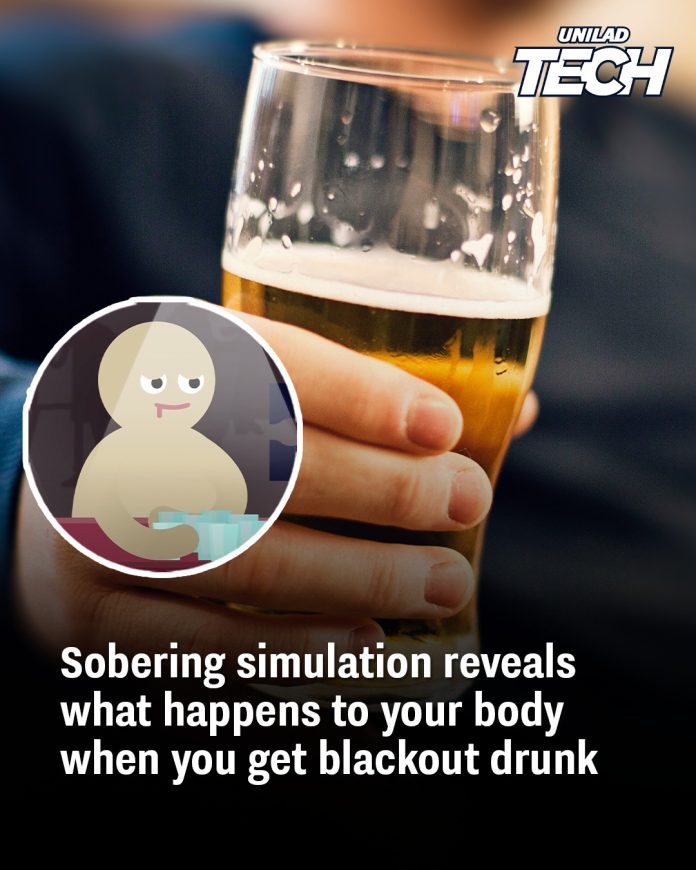A recent simulation has vividly illustrated the profound effects of excessive alcohol consumption on the human brain, particularly focusing on the phenomenon of alcohol-induced blackouts. This simulation, highlighted by Insider Science, delves into the intricate ways alcohol disrupts brain function, leading to memory lapses and other cognitive impairments.

Blackouts are periods of amnesia during which a person remains conscious and active but cannot recall events later. They occur when alcohol interferes with the brain’s ability to form new long-term memories. Specifically, alcohol impairs the function of the hippocampus, a region critical for memory consolidation.
The simulation explains that neurotransmitters like N-methyl D-aspartate (NMDA) and gamma-aminobutyric acid (GABA) play pivotal roles in memory formation. Alcohol consumption disrupts the balance of these neurotransmitters, hindering the brain’s capacity to transfer information from short-term to long-term memory storage .
The severity of memory impairment correlates with the amount of alcohol consumed. For instance, a 73kg (160lbs) male consuming approximately eight shots within an hour could reach a blood alcohol concentration (BAC) of 0.2%. At this level, individuals may experience a “greyout” or “fragmentary blackout,” where partial memories are retained, but significant gaps exist.
Consuming additional alcohol can escalate the situation to a full “en bloc” blackout, characterized by a complete inability to recall events. Alarmingly, individuals in this state may continue to engage in conversations and activities, appearing coherent to others, despite the brain’s failure to record these experiences.
Susceptibility to blackouts varies among individuals due to factors such as body weight, sex, genetic predispositions, and tolerance levels. Some people may experience blackouts at lower BAC levels, highlighting the importance of understanding personal limits and the risks associated with excessive drinking.
Beyond memory impairment, excessive alcohol consumption poses numerous health risks. Short-term effects include impaired judgment, increased likelihood of accidents, and potential alcohol poisoning. Long-term consequences encompass liver damage, cardiovascular issues, and neurological disorders.
The simulation serves as a stark reminder of these dangers, emphasizing that while alcohol may temporarily elevate mood by increasing dopamine and serotonin levels, the subsequent impact on brain function and overall health can be detrimental.
Educational tools like this simulation are crucial in fostering awareness about the effects of alcohol on the brain. By visualizing the internal processes disrupted by excessive drinking, individuals may be more inclined to make informed decisions regarding alcohol consumption.

Understanding the science behind blackouts can also aid in destigmatizing conversations about alcohol-related experiences, encouraging individuals to seek help and support when needed.
The simulation underscores the importance of moderation and awareness when it comes to alcohol consumption. By shedding light on the neurological underpinnings of blackouts, it provides valuable insights into the risks associated with excessive drinking. As we navigate social situations where alcohol is present, being informed about its effects can empower us to make choices that prioritize our health and well-being.

















